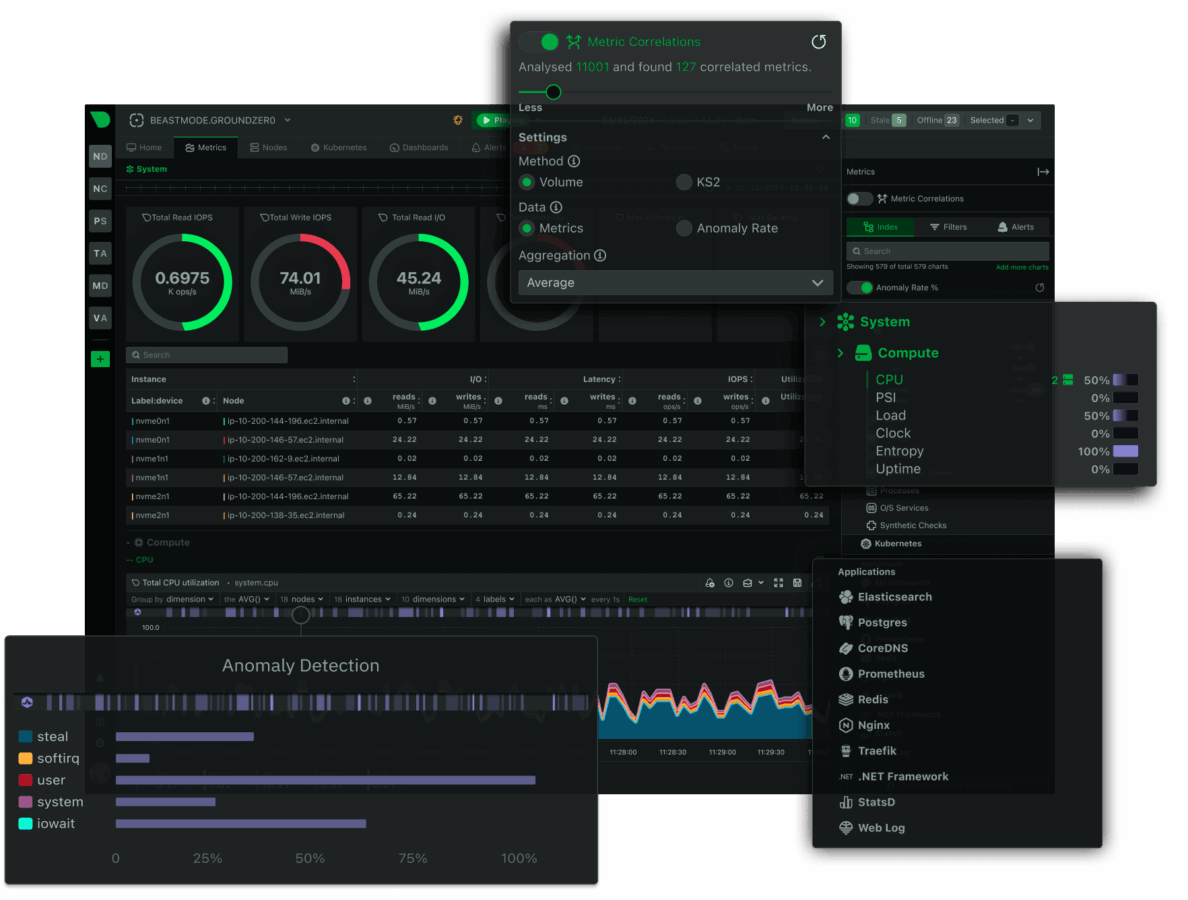
promo
Sign up now and get 10% off your first 12 months—because smart teams (and smart friends) know a good thing when they see it.
PROMO LINK : https://netdata.cello.so/igNeQJTdTav
Netdata Assistant
Netdata Assistant: Your AI-Powered Troubleshooting Sidekick
The Netdata Assistant is an AI-powered tool that uses large language models and our community’s knowledge to guide you during troubleshooting and help you get to the root cause sooner.
The goal of the Netdata Assistant is straightforward: to make your troubleshooting process easier. It’s here to save you from the hassle of sifting through tons of information so you can focus on solving the problem at hand.
It will give you the lowdown on the alert, why it’s happening, and why you should care. It’ll also guide you on how to troubleshoot it and even offer some handy web links for more info if you’re interested.
Read more about it on the Netdata blog here.
New FreeIPMI collector for monitoring enterprise hardware
Netdata got a new FreeIPMI collector. The new collector is able to collect IPMI sensors at a much better data collection rate, and it is more reliable and robust compared to the previous one.
We have also categorized all sensors based on the component they monitor:
And provided as labels the exact sensor name each metric refers to:
Netdata Detects FDs Leaking
“FD” stands for “file descriptor”. A file descriptor is an integer that the operating system assigns to an open file to track it. This includes regular data files, directories, network sockets, pipes, and other types of I/O streams.
In Linux, everything is treated as a file, which includes hardware devices, directories, and sockets. Each open file is assigned a file descriptor. When a file is closed, its file descriptor is freed up for reuse. However, if an application doesn’t close a file when it’s done with it, that’s called a “file descriptor leak”.
File descriptor leaks can cause several problems:
- Resource exhaustion: Each process has a limit to the number of file descriptors it can open. If a process continually leaks file descriptors without closing them, it will eventually hit this limit and won’t be able to open any more files, which often causes the process to crash.
- Unexpected behavior: Open file descriptors hold resources, like network sockets, that might be expected to be available for other uses. If these resources are tied up due to a leak, it can cause unexpected behavior.
- Security issues: File descriptors can sometimes be used to gain unauthorized access to data if they’re not properly managed.
apps.plugins is now able to track the usage of FDs against the limits set for each application. We have added an fds category in the Applications section of the dashboard. The first chart shows the percentage of FDs used by each application against its limits:





